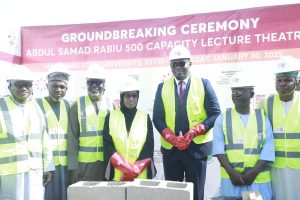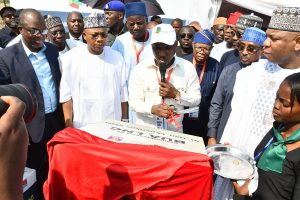The Director-General of the Nigerian Institute of Medical Research (NIMR), Prof. Babatunde Salako, recently announced that over 25,000 Nigerians have benefited from the institute’s HIV clinic program and research initiatives.
Prof. Salako made this disclosure during a press conference marking the end of his eight-year tenure as NIMR’s Director-General. He highlighted the institute’s critical role in combating HIV in Nigeria, noting that NIMR diagnosed the country’s first HIV cases and has since become a leading center for HIV research and patient care.
“NIMR has been instrumental in the HIV pandemic response,” Prof. Salako stated. “Our HIV research center and clinic program have served over 25,000 patients in recent years. Additionally, we have been involved in assessing the efficacy, effectiveness, and safety of anti-retroviral drugs, particularly when generic options were first introduced in Nigeria.”
Beyond HIV, NIMR has also made significant contributions to Nigeria’s healthcare sector. The institute trained approximately 1,600 healthcare professionals, including doctors, pharmacists, and laboratory scientists, and tested around 65,000 Nigerians for COVID-19 using innovative home-grown solutions.
Prof. Salako also highlighted NIMR’s achievements in other critical areas such as tuberculosis, neglected tropical diseases, and malaria research. However, he acknowledged ongoing challenges, including staff attrition, limited cancer research, and inadequate funding.
He emphasized the urgent need for expanded cancer research to prevent the disease from becoming a double burden in Nigeria. “We cannot afford to wait until it becomes a double burden,” he urged, calling for increased resources and research efforts in this area.
As Prof. Salako’s tenure ends on July 23, he expressed gratitude to the government for significantly increasing the institute’s yearly allocation, which has enabled NIMR to make these strides in medical research and public health.






